Mary Anne Yarde's Blog: The Coffee Pot Book Club , page 22
March 1, 2021
Welcome to Day #2 of the blog tour for The Lengthening Shadow (The Linford Series) by Liz Harris #HistoricalFiction #BlogTour #CoffeePotBookClub @lizharrisauthor

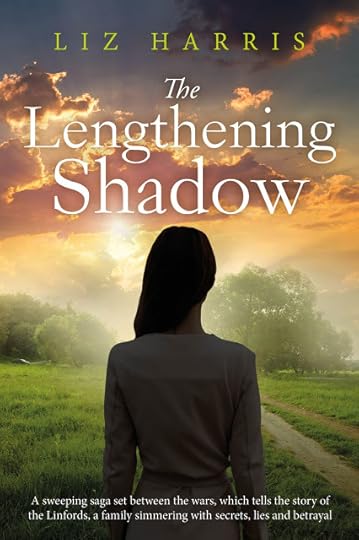
March 1st – March 12th 2021Publication Date: 1st March 2021Publisher: Heywood PressPage Length: 360 PagesGenre: Historical Fiction
When Dorothy Linford marries former German internee, Franz Hartmann, at the end of WWI, she’s cast out by her father, Joseph, patriarch of the successful Linford family.
Dorothy and Franz go to live in a village in south-west Germany, where they have a daughter and son. Throughout the early years of the marriage, which are happy ones, Dorothy is secretly in contact with her sister, Nellie, in England.
Back in England, Louisa Linford, Dorothy’s cousin, is growing into an insolent teenager, forever at odds with her parents, Charles and Sarah, and with her wider family, until she faces a dramatic moment of truth.
Life in Germany in the early 1930s darkens, and to Dorothy’s concern, what had initially seemed harmless, gradually assumes a threatening undertone.
Brought together by love, but endangered by acts beyond their control, Dorothy and Franz struggle to get through the changing times without being torn apart.
Head over to Brook’s Scrolls for a sneak-peek between the covers!
Click HERE!

Welcome to Day #12 of the blog tour for Beware the Lizard Lurking (The House of the Red Duke, Book 2) by Vivienne Brereton @VivienneBreret1
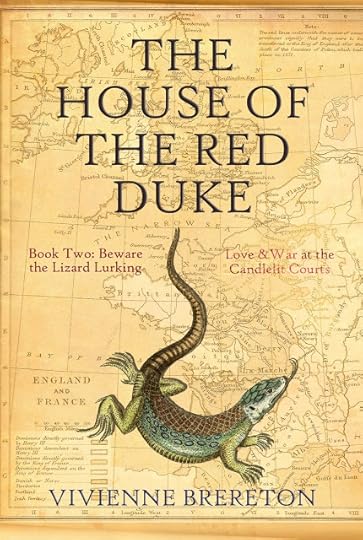
February 15th – March 5th 2021
Publication Date: 12th February 2021Publisher: Yuletide PressPage Length: 302 PagesGenre: Historical Fiction
Welcome to the candlelit courts of Europe!
Uninvited guests at a secret wedding. A frozen River Thames.
May Day celebrations to remember.
The young HenryVIII, with the aid of his chief advisor, Thomas Wolsey, and against the counsel of Thomas Howard, the Earl of Surrey, is hellbent on a so-called holy war with France. This puts him at odds with his Scottish brother-in-law, James IV of Scotland, and his older sister, Margaret.
Both Tristan and Nicolas know that time is running out for them before they have to…enter the Church - and into an arranged marriage, respectively. In the meantime, they remain at loggerheads over pretty Ysabeau de Sapincourt, the spoilt young wife of the hapless Robert.
At La Colombe, near Ardres, in Picardy, spirited little Valentine is still making mischief as she sees fit.
Across the Narrow Sea, Cecily is perfectly content in her beloved Zennor Castle, in Cornwall.
None of them know what Dame Fortune has in store for them. Will she allow them to follow their own paths…or has she got other ideas?
Head over to Let your words shine…for a sneak-peek between the covers.
Click HERE!
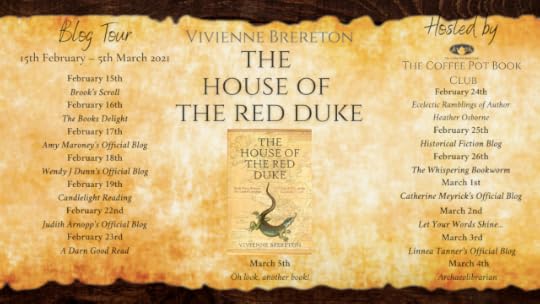
February 28, 2021
Welcome to Day #6 of the blog tour for Blood Libel by M Lynes #HistoricalFiction #BlogTour @MLynesAuthor
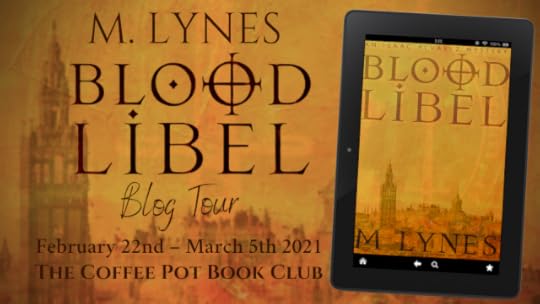
FEBRUARY 22ND – MARCH 5TH 2021
Publication Date: 31st January 2021
Publisher: Independently Published
Page Length: 260 Pages
Genre: Historical Mystery
Seville, 1495
The mutilated body of a child is discovered behind a disused synagogue. The brutal Spanish Inquisition accuses the Jewish community of ritual child murder - the ‘blood libel’. The Inquisition will not rest until all heretics are punished.
Isaac Alvarez, a lawyer working for the royal estate, is a reluctant convert to Catholicism who continues to secretly practice Judaism. When his childhood friend is accused of the murder Isaac is torn between saving him and protecting his family. Isaac is convinced that solving the murder will disprove the blood libel, save his family, and protect his faith.
As the Inquisition closes in how far will Isaac go to protect both his family and his faith?
Head over to I got lost in a book for a fabulous review.Click HERE!
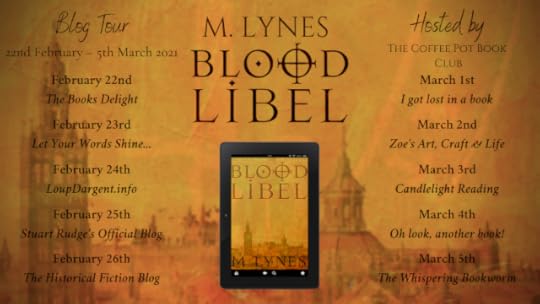
Welcome to Day #1 of the blog tour for The Lengthening Shadow (The Linford Series) by Liz Harris #HistoricalFiction #BlogTour #CoffeePotBookClub @lizharrisauthor


March 1st – March 12th 2021Publication Date: 1st March 2021Publisher: Heywood PressPage Length: 360 PagesGenre: Historical Fiction
When Dorothy Linford marries former German internee, Franz Hartmann, at the end of WWI, she’s cast out by her father, Joseph, patriarch of the successful Linford family.
Dorothy and Franz go to live in a village in south-west Germany, where they have a daughter and son. Throughout the early years of the marriage, which are happy ones, Dorothy is secretly in contact with her sister, Nellie, in England.
Back in England, Louisa Linford, Dorothy’s cousin, is growing into an insolent teenager, forever at odds with her parents, Charles and Sarah, and with her wider family, until she faces a dramatic moment of truth.
Life in Germany in the early 1930s darkens, and to Dorothy’s concern, what had initially seemed harmless, gradually assumes a threatening undertone.
Brought together by love, but endangered by acts beyond their control, Dorothy and Franz struggle to get through the changing times without being torn apart.
Welcome to Day #1 of the blog tour for The Lengthening Shadow. The first stop of our tour is over on Emma Lombard’s Official Blog where you can have a sneak-peek between the covers.
Click HERE!

Join me in conversation with author, Chris West. Chris' fabulous book - The Beijing Opera Murder is only 0.99 on #Kindle for a Limited Time #HistoricalFiction #Mystery #Crime @chriswestwriter @SharpeBooks


Publication Date: 29th December 2020Publisher: Sharpe BooksPage Length: 196 PagesGenre: #HistoricalFiction #Crime
China, 1990.
A nation struggles to reconcile its ancient traditions, the strident rhetoric of the Party, and the economic and social upheavals of change. Memories of the events on Tiananmen Square, from one year before, also haunt the city.
Inspector Bao Zheng is a middle-ranking Beijing detective caught in these conflicting currents.
For some relaxation, the inspector attends an evening of traditional opera – but the night proves far from relaxing. A murder is committed in the auditorium, and he has to investigate.
Bao soon finds himself involved with the renascent Triads, a young woman that his superiors would like to frame and the possibility of corruption at a high level.
He must also deal with the political consequences of Tiananmen.
Enemies are keen to expose Bao as sympathetic to the protestors, which would endanger his career and possibly his life.
The Inspector realizes that to solve the case and to save himself he must put himself in peril. But will this judgement prove fatal?
Originally published as Death of a Blue Lantern, The Beijing Opera Murder is the first in a series of crime novels set in China during the decade it changed from an inward-looking ‘sleeping giant’ to a global economic superpower.

Pick up your copy for only 0.99 on #Kindle for a Limited TimeAmazon UK • Amazon US
Read for #Free with #KindleUnlimited subscription.
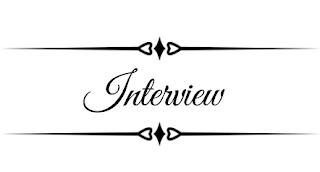
Mary Anne: A huge congratulations on the publication of the first book in The Inspector Bao Zheng series, The Beijing Opera Murder. Could you tell us a little about your books and how you came to write them?
Chris West: Thank you!
I’ve always been fascinated by China. When growing up, it seemed the most ‘different’ place I could imagine, with its strange writing, its mysterious politics (I grew up in the 1960s) and its cultural and artistic traditions totally disconnected from mine. My dad sometimes took the family out to the ‘Hong Kong’ restaurant in Stevenage – it was new, then, and seemed extraordinarily exotic.
I also loved detective stories, and these two interests converged in the wonderful Judge Dee series by Robert van Gulik.
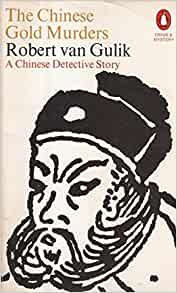
The titles of my own books are a nod to van Gulik. His books are set in the Tang Dynasty (618 – 907 AD). I wanted to write about a more recent era.
I went to China as soon as I could, in the 1980s, when it first opened up to solo Western backpackers. It was not your standard Asian backpacking adventure – no hippie hang-outs and hardly anyone who spoke English -- but all the more fascinating for that. The country was still rather grey, with most people in blue Mao suits and riding bicycles. But there was a great energy there. I met some young Chinese people who were determined to create a brighter future. The first result of this adventure was a travel book, The first result of this adventure was a travel book, Journey to the Middle Kingdom, which was published in 1991.
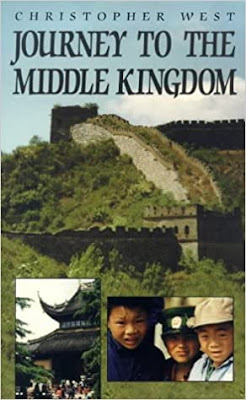
During the 1990s, I wrote four books set in what was then ‘contemporary’ China. I researched each one with a visit, and was completely bowled over by the pace of change that happened as I did so. Sadly this was not all for the best: many of Beijing’s beautiful old ‘hutongs’ were bulldozed to make new office blocks, and the city’s streets became ever more clogged with polluting cars. But such was progress…
The books then lay forgotten, but last year I decided to revisit them. They had, I found, become historical pieces, summoning an era that was now as distant as the Tang in many ways. China’s economic progress in the first two decades of this century had been phenomenal, and much of the old China had been buried.
Mary Anne: The 1990s saw rapid economic development, social change and political anxieties in China. What drew you to this era and why did you think it would make such a good backdrop for your story?
Chris West: The 1990s are the decade when China really ‘took off’ and turned into an economic superpower. It was also a time when people were confused: the old Communist slogans didn’t work any more, but people still clung to them. Such eras create good stories, I feel.
The 1990s saw China opening up to the world. Bao Zheng’s wife, Rosina, wants to travel and see the world – an ambition that would have been impossible for any ordinary Chinese citizen in the 1980s.
The decade also saw China appearing to come to terms with the events of Tiananmen Square – more on this in the next question! Here, the arc of change is different. China seemed to tolerate more and more dissent (within boundaries) in the middle of the decade, but the 1990s ended with a harsh crackdown on the Falun Gong movement.
China has moved on a long way since 2000. Sadly, many of these ways are unattractive to us in the West – though not all. History is rarely totally good vs bad.
Mary Anne: The protagonist of your story is Inspector Bao Zheng who not only has to deal with a murder but also the political consequences of what happened in Tiananmen Square in 1989. What were the challenges you faced in researching this period of history and were there any unexpected surprises?
Chris West: I was lucky enough to be able to visit China in the 1990s and find people more open to conversation than they might be now. I met members of the Chinese police force and spent some time with them. Somewhere I’ve still got a cap badge I was given by one of them. What struck me then was the similarity of their work to that of police in the West, namely dealing with crime. They resented political interference in their work.
Yes, this was partially what they wanted me to see, but even that is significant. I think a similar author now would be shown a much more united front, with political interference accepted and even welcome as ‘guidance’.
As regards Tiananmen Square, there is plenty of material on the massacre – for Western researchers.
Mary Anne: What do you think is the most challenging aspect of writing modern day Historical Fiction?
Chris West: There is a huge clash between modern attitudes and those of bygone eras. I’m 66, and some of the conversations I heard as a boy would be totally unacceptable nowadays, but were held between fundamentally decent people.
This is also true when writing about very different cultures.
So there’s a tension between making a character sympathetic to modern readers but at the same time sufficiently realistic to belong to their culture and era.
The bridge between any past era / culture and our own is, of course, the big, timeless, shared human themes such as love, loyalty, ambition, deception (and so on). So it’s not the case that past eras are totally ‘other countries’. But they are very different to ours, and every writer has to work out their own balance.
In the case of my own fiction, most people in China still think that the Tiananmen massacre was necessary (they also don’t believe as many people died as we do). Their argument is that a country of 1.4 billion people needs firm government, and that the Tiananmen protests threatened to undermine that. Older people remember the anarchy of the Cultural Revolution (a topic I visit in the second book in the series). My challenge was to create a realistic, sympathetic character in the context of that. I ended up making Bao Zheng a secret critic of Tiananmen, but one with mixed feelings.
Mary Anne: What advice do you have for aspiring Historical Fiction authors?
Chris West: Above all, it has to be, ‘Love the era and the geographical setting you are writing about’. That way you’ll enjoy the research and do lots of it – and readers will pick up on your passion.
A second piece of advice relates to the previous question: find a balance that you are happy with between modern sensibilities and historical accuracy.
I’d also say be proud of writing Historical Fiction. When I started writing, Historical Fiction was rather frowned on. One was supposed to be contemporary. This attitude has now largely disappeared, but it might come back again – fashions come and go in literature. If it does, ignore it and do what you love.
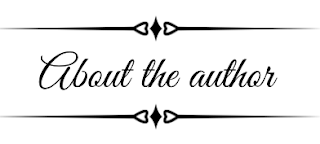
 Christopher West was born in 1954. He studied Philosophy at university and worked as a musician for a number of years, before pursuing a more reliable career in marketing. In the mid-1980s he fulfilled a long-held ambition and travelled solo in China. A description of his adventures there, Journey to the Middle Kingdom, was published in 1991.
Christopher West was born in 1954. He studied Philosophy at university and worked as a musician for a number of years, before pursuing a more reliable career in marketing. In the mid-1980s he fulfilled a long-held ambition and travelled solo in China. A description of his adventures there, Journey to the Middle Kingdom, was published in 1991.During the 1990s he wrote four books set in the China of that time. He then branched out into writing business, history and psychology books. The business titles include Myths about Doing Business in China, co-authored with Harold Chee.
Recently, he has reworked the four 1990s China novels, and these are now published, in their new form, by Sharpe books.
Married, with one daughter, he lives in Hertfordshire.
Connect with Chris:Website • Twitter

Welcome to Day #4 Welcome to Day #3 of the blog tour for Len Maynard's fabulous book — A Dangerous Life (DCI Jack Callum Mysteries Book 2) #HistoricalFiction #Crime @len_maynard

Join The Coffee Pot Book Club on tour with...
A Dangerous Life
(DCI Jack Callum Mysteries Book 2)
By Len Maynard
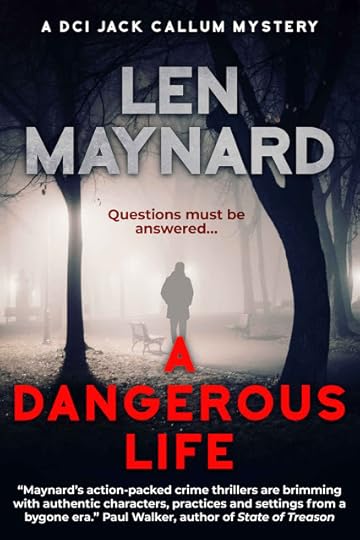
February 8th – April 12th 2021
Publication Date: 28th July 2020Publisher: Sharpe BooksPage Length: 287 PagesGenre: Historical Crime Fiction1959
A body of a man wearing theatrical make up is found hanging from a tree on Norton Common in Hertfordshire. He has been tortured and his throat has been cut.
DCI Jack Callum, a veteran policeman with his own rules for procedure, heads the investigation into this puzzling crime. The clues lead him close to the answer, but the solution remains elusive.
Why was the man killed?
What were the victim’s links to London’s gangland bosses?
When an unsolved murder is uncovered that appears to be connected to the case, Jack realises he must use his team to their full strength to separate the innocent from the guilty.
Jack also faces a challenge he never expected as he is accused of an improper relationship with a young Detective Constable on his team, Myra Banks.
In a breathless climax, Myra puts her own life on the line to deal with a figure from Jack’s past, who has now become a lethal threat in the present.
Head over to Samantha Wilcoxson's Official Blog for a fabulous guest post.
Click HERE!

Welcome to Day #5 of the blog tour for The Bridled Tongue by Catherine Meyrick #HistoricalFiction #BlogTour #CoffeePotBookClub @cameyrick1

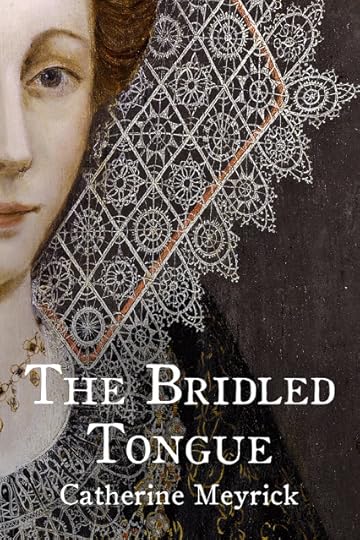
1st February – 5th April 2021
Publication Date: 1st February 2020Publisher: Courante PublishingPage Length: 358 pagesGenre: Historical Fiction/Women’s Fiction
England 1586. Alyce Bradley has few choices when her father decides it is time she marry as many refuse to see her as other than the girl she once was--unruly, outspoken and close to her grandmother, a woman suspected of witchcraft.
Thomas Granville, an ambitious privateer, inspires fierce loyalty in those close to him and hatred in those he has crossed. Beyond a large dowry, he is seeking a virtuous and dutiful wife. Neither he nor Alyce expect more from marriage than mutual courtesy and respect.
As the King of Spain launches his great armada and England braces for invasion, Alyce must confront closer dangers from both her own and Thomas's past, threats that could not only destroy her hopes of love and happiness but her life. And Thomas is powerless to help.
Death and life are in the power of the tongue.
Head on over to Ruins & Reading for a sneak-peek between the covers
Click HERE!
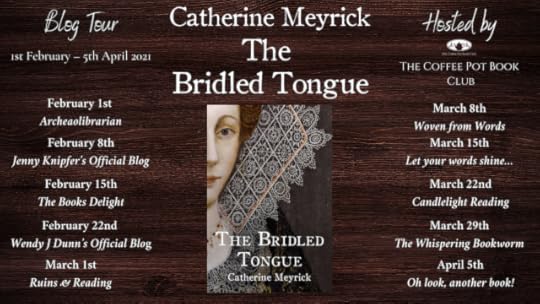
Welcome to Day #11 of the blog tour for Beware the Lizard Lurking (The House of the Red Duke, Book 2) by Vivienne Brereton @VivienneBreret1
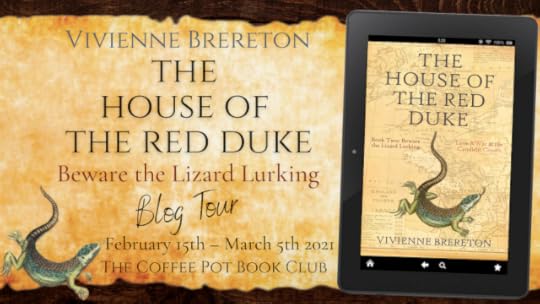

February 15th – March 5th 2021
Publication Date: 12th February 2021Publisher: Yuletide PressPage Length: 302 PagesGenre: Historical Fiction
Welcome to the candlelit courts of Europe!
Uninvited guests at a secret wedding. A frozen River Thames.
May Day celebrations to remember.
The young HenryVIII, with the aid of his chief advisor, Thomas Wolsey, and against the counsel of Thomas Howard, the Earl of Surrey, is hellbent on a so-called holy war with France. This puts him at odds with his Scottish brother-in-law, James IV of Scotland, and his older sister, Margaret.
Both Tristan and Nicolas know that time is running out for them before they have to…enter the Church - and into an arranged marriage, respectively. In the meantime, they remain at loggerheads over pretty Ysabeau de Sapincourt, the spoilt young wife of the hapless Robert.
At La Colombe, near Ardres, in Picardy, spirited little Valentine is still making mischief as she sees fit.
Across the Narrow Sea, Cecily is perfectly content in her beloved Zennor Castle, in Cornwall.
None of them know what Dame Fortune has in store for them. Will she allow them to follow their own paths…or has she got other ideas?
Head over to Catherine Meyrick’s Official Blog fo an exclusive interview!
Click HERE!

Welcome to Day #1 of the blog tour for Harvest Moon by Jenny Knipfer #HistoricalFiction #HarvestMoon #BlogTour @JennyKnipfer @maryanneyarde

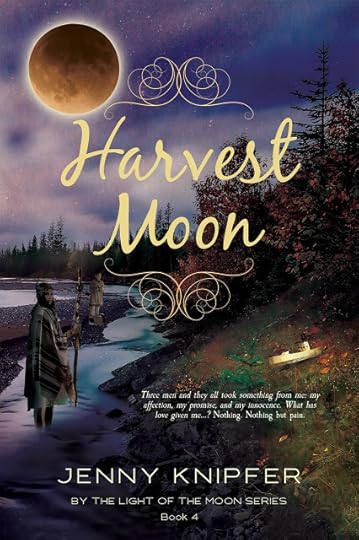
March 1st - May 3rd 2021
Publication Date: 23rd November, 2020 Publisher: Independently PublishedPage Length: 291 PagesGenre: Historical Fiction / Christian Historical FictionIn the wilds of 19th century Ontario, Maang-ikwe, a young Ojibwe woman, falls into a forbidden love, breaks her father’s honor, and surrenders her trust to someone who betrays it. The abuse she suffers divides her from her tribe and causes her to give up what she holds most dear.
Niin-mawin must come to grips with his culture being ripped away from him. Brought up in a “white man’s” school, he suffers through an enforced “civilized” education and separation from his family. When a man he respects reveals a secret about Niin-mawin’s past, he embarks on a search for the person he hopes can mend the part of his heart that’s always been missing.
Both Maang-ikwe and Niin-mawin wonder how a harvest of pain and sorrow will impact their lives. Will they find the blessings amongst the hardships, or will they allow the results of division and abuse to taint their hearts forever?
Fans of historical fiction, Native American fiction, Christian historical fiction, clean romance, and literary fiction will be moved by this deep, heartfelt novel.
Our first stop of the tour is over Mary's Tavern for a fabulous excerpt.
Click HERE!
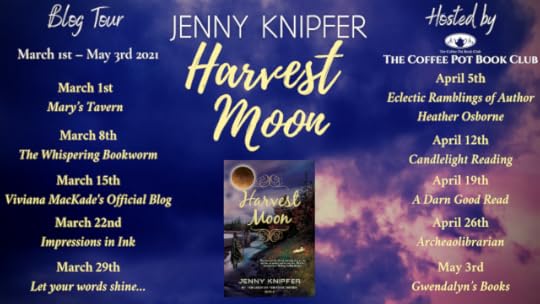
February 25, 2021
Discover what inspired #HistoricalFiction author, L.J. Trafford, to write The Four Emperors series #mustread #Inspiration @TraffordLj

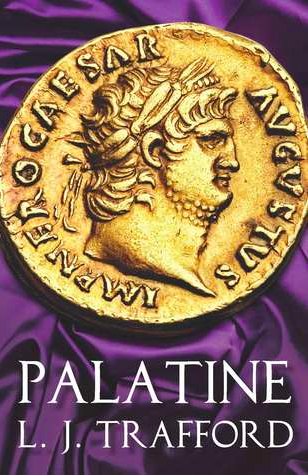
Publication Date: 31st August 2018Publisher: SphinxPage Length: 428 PagesGenre: Historical Fiction
Debauchery. Depravity. Decadence. Just everyday life at the Imperial Palace.
Whilst Emperor Nero plays with his new water organ and a cross-dressing eunuch, his wily secretary Epaphroditus manages affairs of state. But dissent and rebellion are growing across the empire, and Nero is soon to discover playtime is over. Praetorian prefect Nymphidius Sabinus, disgusted by the moral degeneracy, secretly plots the overthrow of Nero's court. Motivated by the traditional Roman values of valour and nobility, yet blinded by his own righteousness, Sabinus is ignorant of what he has unleashed - The Year of the Four Emperors.
Palatine is the first in an enthralling four-book series about the tumultuous 'Year of the Four Emperors'.

How I came to write the Four Emperor Series.

The year 69 A.D. was a momentous one in Ancient Rome, known as the Year of the Four Emperors, it saw four very different men battle for supremacy. Three would ultimately fail, one would be left standing as the sole ruler of an empire that stretched from chilly Northern Europe to the warmth of the North African desert.
It is a year heaped with incident and drama; massacres, coups and battles between warring armies all feature. But my inspiration for writing the Four Emperors Series of novels came from a single moment in this most incident packed of years.
It was the morning of the 15th January 69 A.D. and Emperor Galba has discovered his own Praetorian Guard have declared Otho emperor. A debate followed between his advisors as to what they should do, when one made a suggestion:
“Titus Vinius urged the necessity of staying in the palace, arming the slaves for defence.” So says Tacitus in his Histories, an account of this year.
My immediate thought was, “I wonder what those slaves were thinking?”
This was the lightbulb moment, the driving force behind the four books (Palatine, Galba’s Men, Otho’s Regret and Vitellius’ Feast) that make up the series, what were these Imperial slaves and ex-slaves of the palace thinking?
What were their thoughts as Galba’s advisors handed out the weaponry and instructed them to hold the palace?
Were their loyalties even with Galba? Or did they see Otho as their saviour?
What was it like for them to have their whole world turned upside down serving four very different men as emperor in the space of a year?
How did they survive these violent changes of regime?
Indeed, how did they survive at all in a brutal world where they could be whipped, beaten or even crucified on the whim of their master?
These were the characters whose eyes I would explore this dramatic year through, because the Imperial slaves and ex-slaves of the palace are the ones with a ringside seat of events. When Emperor Nero fled Rome in 68 A.D. and committed suicide, which kicked off this bloody battle to be his successor, he took only three people with him; they were all ex-Imperial slaves.
These members of the Imperial household are by the side of emperors as they triumph and as they, bloodily, fall. They were the perfect witnesses for my fiction series.
Having slaves as my heroes and heroines gave me a chance to explore a chunk of Roman life that isn’t so well known. Soldiers and gladiators are well covered in fiction, but those toiling as secretaries and seamstresses, bodyguards and hairdressers for their Imperial masters and mistresses feature less often. Their voices are absent from the historical record almost entirely, there are no memoirs by Roman slaves, there are no accounts of their lives by themselves. When the likes of Tacitus mention them at all, it is a sneering way; uppity ex-slaves unworthy of advising and emperor. It seemed important to give them a voice for once, along with their own dreams, ambitions and failings – all played against the drama of history.
One reviewer described Palatine as: “Downton Abbey with teeth.” Which I think captures it nicely.





 Amazon UK • Amazon US
Amazon UK • Amazon US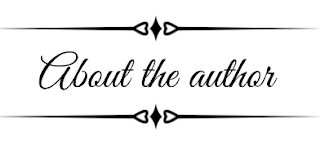
 L.J. Trafford studied Ancient History at the University of Reading after which she took a job as a Tour Guide in the Lake District.
L.J. Trafford studied Ancient History at the University of Reading after which she took a job as a Tour Guide in the Lake District.Moving to London in 2000 she began writing ‘The Four Emperors’ series. The series comprises four books – Palatine, Galba’s Men, Otho’s Regret and Vitellius’ Feast – which cover the dramatic fall of Nero and the chaotic year of the four emperors that followed.
Palatine received an Editor’s Choice mark from The Historical Novel Society.
Her most recent published work is the non-fiction, How To Survive in Ancient Rome is available from Pen and Sword.

The Coffee Pot Book Club
...more
- Mary Anne Yarde's profile
- 159 followers



